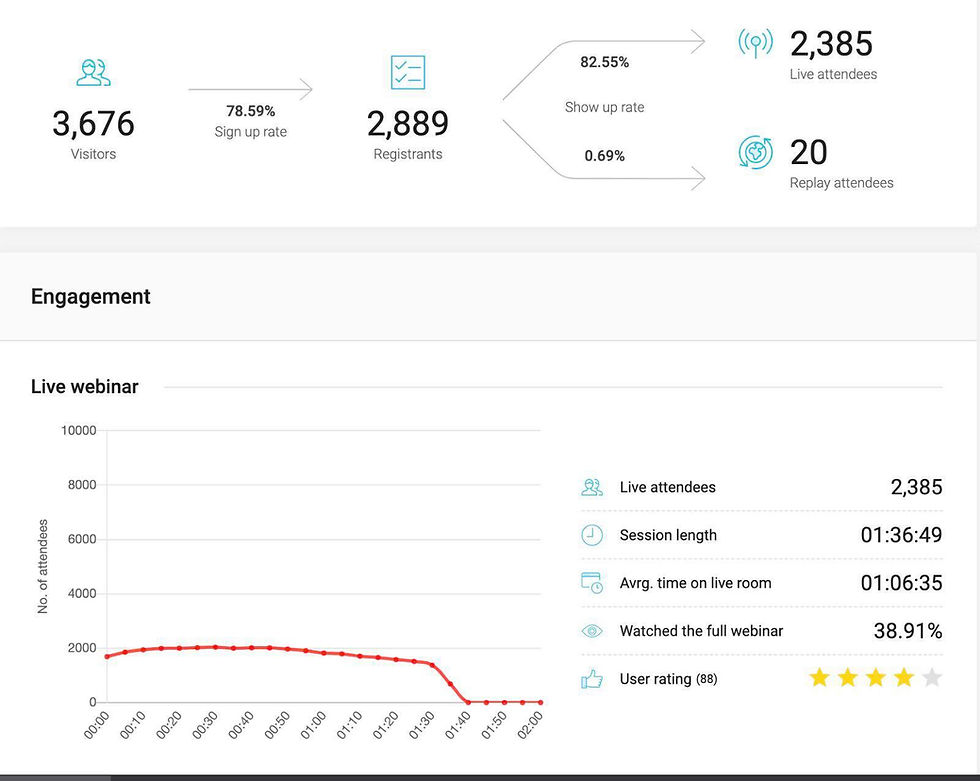First Webinar Demographics: UGAT, ADMU-IPC, and PCHRD thank more than 2,300 live attendees
- admin

- Apr 22, 2020
- 2 min read
by Romeo J. Toring, Jr.

The Ugnayang Pang-Aghamtao (UGAT), Ateneo de Manila University’s Institute of Philippine Culture (IPC), and the Philippine Council for Health and Research Development (PCHRD) thank all the attendees in the webinar "Mahirap maging mahirap: How are the poor coping with COVID-19?" held last April 21, 2020 from 1:30-3:00PM (UTC +8).
More than 2,300 live attendees participated in the webinar which lasted for more than an hour and a half. Check out the screenshot below for the actual statistics.

Beatriz Beato, the webinar producer from IPC, opened the event and set some house rules. She also introduced Dr. Mary Racelis, Research Scientist from Ateneo de Manila University, who is the moderator of the webinar.
The speakers of the webinar discussed topics related to the experiences of Filipinos during the enhanced community quarantine with a focus on the plight of the urban poor.
Dr. Maria Carinnes Alejandria of the University of Santo Tomas discussed the struggles of the residents in BASECO compound in Manila, particularly those involved in the garlic industry.
Dr. Joshua San Pedro of the Coalition for People's Health shed light on the struggles of disseminating COVID-related information to the public as reflected in his work as a physician-anthropologist in Quezon City.
Dr. Gideon Lasco of University of the Philippines Diliman highlighted the most vulnerable sectors of the society during COVID-19 pandemic, emphasizing the point that the pandemic as can be viewed as "syndemic". The issues arising during ECQ should not be divorced from the apparent disparities brought by different social, economic, and political contexts.
After the speakers presented, Dr. Mary Racelis facilitated the Q&A portion. The panel tackled interesting topics ranging from "how can anthropologists engage in research while observing social distancing" to "what do social scientists recommend to the government".
A replay of the webinar will be available soon.
For those who have attended the webinar, please fill-up the survey through this link: bit.ly/kkkcovidpart3eval.
Despite some minor technical difficulties, overall, the webinar was a relative success in terms of number of attendees. Interestingly, a noticeable student demographic attended the first webinar. Their presence signals a promising future for the country as the youth participate in academic online discussions about relevant issues in the country.
N.B.
This first webinar for UGAT was initiated and organized by Prof. Skilty Labastilla of the Ateneo de Manila University, who's heading the Special Projects Committee and also a Board Member of UGAT.






Comments